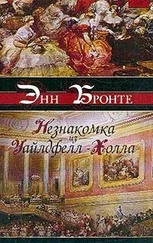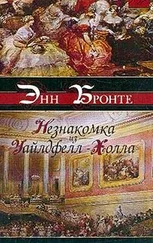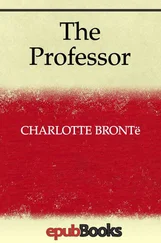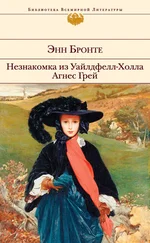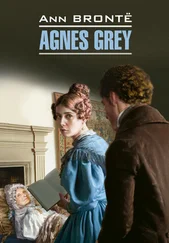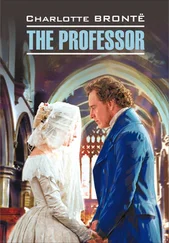1 ...6 7 8 10 11 12 ...119 Soon after the arrival of the guests, my mother mentioned Mrs. Graham, regretted she was not there to meet them, and explained to the Millwards and Wilsons the reasons she had given for neglecting to return their calls, hoping they would excuse her, as she was sure she did not mean to be uncivil, and would be glad to see them at any time. – ‘But she is a very singular lady, Mr. Lawrence,’ added she; ‘we don’t know what to make of her – but I daresay you can tell us something about her, for she is your tenant, you know, – and she said she knew you a little.’
All eyes were turned to Mr. Lawrence. I thought he looked unnecessarily confused at being so appealed to.
‘I, Mrs. Markham!’ said he; ‘you are mistaken – I don’t – that is – I have seen her, certainly; but I am the last person you should apply to for information respecting Mrs. Graham.’
He then immediately turned to Rose, and asked her to favour the company with a song, or a tune on the piano.
‘No,’ said she, ‘you must ask Miss Wilson: she outshines us all in singing, and music too.’
Miss Wilson demurred.
‘ She’ll sing readily enough,’ said Fergus, ‘if you’ll undertake to stand by her, Mr. Lawrence, and turn over the leaves for her.’
‘I shall be most happy to do so, Miss Wilson; will you allow me?’
She bridled her long neck and smiled, and suffered him to lead her to the instrument, where she played and sang, in her very best style, one piece after another; while he stood patiently by, leaning one hand on the back of her chair, and turning over the leaves of her book with the other. Perhaps he was as much charmed with her performance as she was. It was all very fine in its way; but I cannot say that it moved me very deeply. There was plenty of skill and execution, but precious little feeling.
But we had not done with Mrs. Graham yet.
‘I don’t take wine, Mrs. Markham,’ said Mr. Millward, upon the introduction of that beverage; ‘I’ll take a little of your home- brewed ale. I always prefer your home-brewed to anything else.’
Flattered at this compliment, my mother rang the bell, and a china jug of our best ale was presently brought and set before the worthy gentleman who so well knew how to appreciate its excellences.
‘Now THIS is the thing!’ cried he, pouring out a glass of the same in a long stream, skilfully directed from the jug to the tumbler, so as to produce much foam without spilling a drop; and, having surveyed it for a moment opposite the candle, he took a deep draught, and then smacked his lips, drew a long breath, and refilled his glass, my mother looking on with the greatest satisfaction.
‘There’s nothing like this, Mrs. Markham!’ said he. ‘I always maintain that there’s nothing to compare with your home-brewed ale.’
‘I’m sure I’m glad you like it, sir. I always look after the brewing myself, as well as the cheese and the butter – I like to have things well done, while we’re about it.’
‘ Quite right , Mrs. Markham!’
‘But then, Mr. Millward, you don’t think it wrong to take a little wine now and then – or a little spirits either!’ said my mother, as she handed a smoking tumbler of gin-and-water to Mrs. Wilson, who affirmed that wine sat heavy on her stomach, and whose son Robert was at that moment helping himself to a pretty stiff glass of the same.
‘By no means!’ replied the oracle, with a Jove-like nod; ‘these things are all blessings and mercies, if we only knew how to make use of them.’
‘But Mrs. Graham doesn’t think so. You shall just hear now what she told us the other day – I told her I’d tell you.’
And my mother favoured the company with a particular account of that lady’s mistaken ideas and conduct regarding the matter in hand, concluding with, ‘Now, don’t you think it is wrong?’
‘Wrong!’ repeated the vicar, with more than common solemnity – ‘criminal, I should say – criminal! Not only is it making a fool of the boy, but it is despising the gifts of Providence, and teaching him to trample them under his feet.’
He then entered more fully into the question, and explained at large the folly and impiety of such a proceeding. My mother heard him with profoundest reverence; and even Mrs. Wilson vouchsafed to rest her tongue for a moment, and listen in silence, while she complacently sipped her gin-and-water. Mr. Lawrence sat with his elbow on the table, carelessly playing with his half-empty wine-glass, and covertly smiling to himself.
‘But don’t you think, Mr. Millward,’ suggested he, when at length that gentleman paused in his discourse, ‘that when a child may be naturally prone to intemperance – by the fault of its parents or ancestors, for instance – some precautions are advisable?’ (Now it was generally believed that Mr. Lawrence’s father had shortened his days by intemperance.)
‘Some precautions, it may be; but temperance, sir, is one thing, and abstinence another.’
‘But I have heard that, with some persons, temperance – that is, moderation – is almost impossible; and if abstinence be an evil (which some have doubted), no one will deny that excess is a greater. Some parents have entirely prohibited their children from tasting intoxicating liquors; but a parent’s authority cannot last for ever; children are naturally prone to hanker after forbidden things; and a child, in such a case, would be likely to have a strong curiosity to taste, and try the effect of what has been so lauded and enjoyed by others, so strictly forbidden to himself – which curiosity would generally be gratified on the first convenient opportunity; and the restraint once broken, serious consequences might ensue. I don’t pretend to be a judge of such matters, but it seems to me, that this plan of Mrs. Graham’s, as you describe it, Mrs. Markham, extraordinary as it may be, is not without its advantages; for here you see the child is delivered at once from temptation; he has no secret curiosity, no hankering desire; he is as well acquainted with the tempting liquors as he ever wishes to be; and is thoroughly disgusted with them, without having suffered from their effects.’
‘And is that right, sir? Have I not proven to you how wrong it is – how contrary to Scripture and to reason, to teach a child to look with contempt and disgust upon the blessings of Providence, instead of to use them aright?’
‘You may consider laudanum a blessing of Providence, sir,’ replied Mr. Lawrence, smiling; ‘and yet, you will allow that most of us had better abstain from it, even in moderation; but,’ added he, ‘I would not desire you to follow out my simile too closely – in witness whereof I finish my glass.’
‘And take another, I hope, Mr. Lawrence,’ said my mother, pushing the bottle towards him.
He politely declined, and pushing his chair a little away from the table, leant back towards me – I was seated a trifle behind, on the sofa beside Eliza Millward – and carelessly asked me if I knew Mrs. Graham.
‘I have met her once or twice,’ I replied.
‘What do you think of her?’
‘I cannot say that I like her much. She is handsome – or rather I should say distinguished and interesting – in her appearance, but by no means amiable – a woman liable to take strong prejudices, I should fancy, and stick to them through thick and thin, twisting everything into conformity with her own preconceived opinions – too hard, too sharp, too bitter for my taste.’
He made no reply, but looked down and bit his lip, and shortly after rose and sauntered up to Miss Wilson, as much repelled by me, I fancy, as attracted by her. I scarcely noticed it at the time, but afterwards I was led to recall this and other trifling facts, of a similar nature, to my remembrance, when – but I must not anticipate.
Читать дальше
Конец ознакомительного отрывка
Купить книгу



